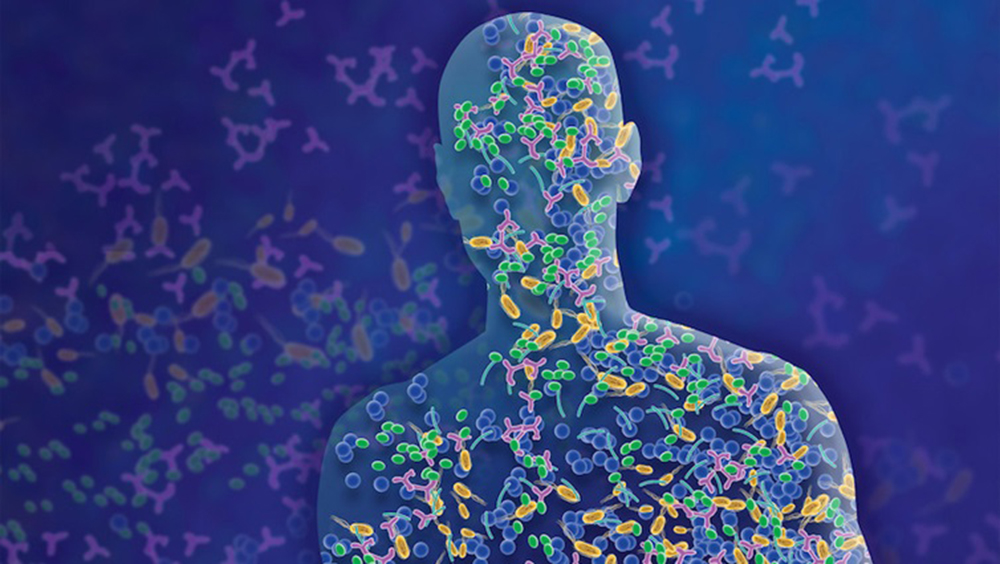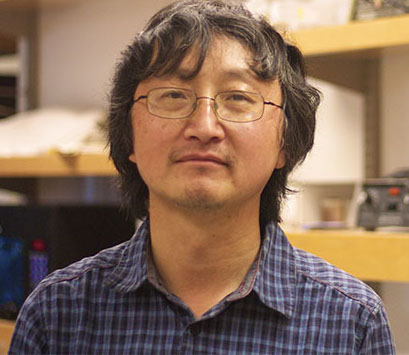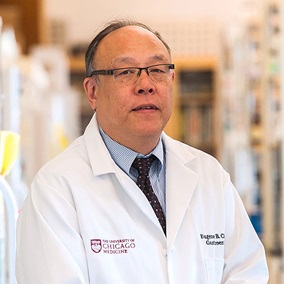August 30, 2018
tRNA key to understanding microbiome activity
Two CBC affiliates, Eugene Chang and Tao Pan, UChicago, are part of a team awarded $1 million grant from the Keck Foundation
Congratulations to Eugene Chang and Tao Pan, UChicago, who are co-PIs on a $1 million grant from Keck Foundation for microbiome study. The team also includes scientists from Marine Biological Laboratory (MBL) and Argonne National Laboratory. The goal of the grant is to develop new, more precise methods to allow the scientists dynamically analyze the changes in the bacteria in response to varied environmental factors in nearly real-time. Tao Pan, an expert in the field of tRNA, plans to employ a tRNA sequencing technique developed in his lab to assess the microbiome activity. Both Chang and Pan are past CBC awardees; Pan also served on the CBC Catalyst Review Board and on the CBC Spark Review Panel (see below). Interestingly, the tRNA sequencing technique was partially developed with support from a CBC Postdoctoral Award (2014) to Guanqun Zheng in the Pan lab. The CBC is proud to have supported this initial and groundbreaking research as well as the other research of Chang and Pan. The CBC would also like to acknowledge Pan’s service on the CBC boards. Thank you and congratulations!
UChicago receives $1M grant from the Keck Foundation to study microbiome dynamics
UChicago Medicine, The Forefront | by Matt Wood | August 15, 2018

Image: Darryl Leja, NHGRI.
University of Chicago researchers have received a $1 million grant from the W.M. Keck Foundation to study how the molecular activity of the microbiome changes in response to the environment.
The research will develop and validate tools to study transfer RNA (tRNA), a molecular Rosetta Stone that translates the genetic information encoded in DNA into proteins that perform basic biological functions. New sequencing technology and bioinformatics software will help scientists analyze the activity of bacteria in the microbiome of various settings and how they respond over time to changes in their environment, such as availability of nutrients or competition from other microbes.
“To understand how microbes in the human gut affect health, for example, we have to know what they are doing and there aren’t good tools for that yet,” said Eugene B. Chang, MD, the Martin Boyer Professor of Medicine at UChicago and one of four investigators leading the project. “These new tools will be so transformative because they will allow us to see the dynamics of microbial communities and how they communicate and affect each other instead of just taking snapshots of what is there.”
The Keck Foundation is one of the nation’s largest philanthropic organizations. Founded in 1954 in Los Angeles by William Myron Keck, founder of Superior Oil Company, the foundation supports “high-risk/high-impact” research in basic science, engineering, and medicine. This includes transformational science and projects with the potential to solve previously intractable problems. Deciphering high-resolution dynamics of the microbiome provides just such a scientific challenge.
The grant also leverages an existing strength of research at UChicago and its Microbiome Center, which connects researchers across UChicago’s Biological Sciences Division, Marine Biological Laboratory (MBL) and Argonne National Laboratory to develop practical tools that advance research on how the microbiome affects human health and environments.
Understanding what microbes are doing, down to the second

Tao Pan, PhD, Professor, Department of Biochemistry and Molecular Biology, The University of Chicago
The research funded by the Keck Foundation will build upon 15 years of work by Tao Pan, PhD, a professor of biochemistry and molecular biology at UChicago. In 2015, his lab published a study detailing a new method for sequencing tRNA efficiently and quantitatively. Until then, tools for sequencing DNA and other types of RNA molecules had been less effective for tRNA, because it carries many chemical modifications that interfere with standard methods. The new sequencing tools used several biochemical techniques to tackle this complexity.
“We want to be able to look at the activity, not just the presence of microbes in the microbiome,” Pan said. “If we can measure changes in transfer RNA, that allows us to potentially understand microbiome dynamics in response to environmental changes at different time scales, from seconds to hours,” he said.
Pan’s initial work was done with human cells, which have on average up to 100 million tRNA molecules. The typical bacterial cell has 10,000 to 100,000 tRNA molecules but they are no less complex to analyze. When studying samples from human cells, scientists have a distinct advantage: a reference genome to help them compare and locate what they’ve found. Microbiome samples can contain thousands of species with distinct, possibly unknown, genomes, making the task of studying the resulting tRNA molecules that much more complex.
The first aim of the project will be to perfect Pan’s tRNA sequencing tools and make them widely accessible to use with patient or environmental samples at a low cost. A second goal is to develop new tools to understand the large sets of data generated by sequencing tRNA.
A. Murat Eren, PhD, a computer scientist and microbiologist in the Department of Medicine, has developed a software platform called anvi’o to help scientists visualize multiple large sets of genetic and molecular data in an easy-to-use, interactive display. He originally built anvi’o for metagenomic data, the work of reconstructing genomes of microbes directly from environmental samples. Now, his team will begin to develop a version of the software for analyzing tRNA molecules.
In addition to developing technology, the grant will also fund three proof-of-concept projects to show how the new tools can be used to study tRNA in well-designed biological experiments. The first, run by Mitch Sogin, PhD, and Jessica Mark Welch, PhD, microbiologists at MBL, will explore the dynamics of the human oral microbiome—i.e. the bacteria in our mouths.
Two other studies led by Chang will examine the gut microbiome of mice. One study will look at the changes induced by high-fat vs. low-fat diets. The second, in partnership with Vanessa Leone, PhD, a gastroenterology researcher from the Department of Medicine at UChicago, and Dion Antonopoulos, PhD, a microbiologist at Argonne, will study circadian rhythms, or the daily and hourly patterns of activity of gut microbes.
“The types of studies that can come from this work will have enormous impact,” Chang said. “These are tools to look at rapid dynamic and functional shifts in complex microbial populations in a context that will help us understand the impact of gut microbes as a community on our health and risk for disease.”
Source:
Adapted (with modifications) from the UChicago Medicine, The Forefront, by Matt Wood, published on August 15, 2018.
Citation attributed to the *CBC funding:
Zheng G, Qin Y, Clark WC, Dai Q, Yi C, He C, Lambowitz AM, Pan T. Efficient and quantitative high-throughput tRNA sequencing. Nat Methods. 2015 Sep;12(9):835-7. (PubMed)
Featured scientist(s) with ties to cbc:
Eugene Chang, UChicago
- CBC Catalyst Award (2015):
▸ Role of Gut Microbiota in Determining Drug Efficacy and Toxicity
PIs: Hyunyoung Jeong (UIC) and Eugene Chang (UChicago)
Tao Pan, UChicago
- *CBC Postdoctoral Research Award (2014):
▸ Development of High Throughput Methods For Quantitative Sequencing of Transfer RNA
PIs: Guanqun Zheng (postdoc) and Tao Pan (UChicago) - CBC Catalyst Award (2013):
▸ Extra-Translation Function of Transfer RNA as Regulators of Cellular Processes
PIs: Tao Pan (UChicago), Marsha Rosner (UChicago) and Hidayatullah G. Munshi (NU) - CBC Catalyst Award (2006):
▸ Epigenetics of RNA: a systems approach
PIs: Alfonso Mondragon (NU) and Tao Pan (UChicago) - CBC Catalyst Review Board (2012-2016):
▸ Current membership
Tao Pan (UChicago) — Past Board Member - CBC Spark Review Panel:
Tao Pan (UChicago) — Past Panel Member

